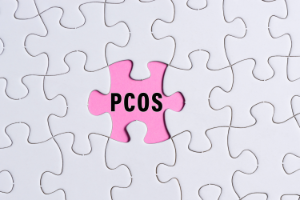
The vast majority of women of reproductive age are familiar with polycystic ovary syndrome, or PCOS. This common hormone disorder can result in heavy menstrual cycles or overproduction of the male hormone androgen. Today, self-help author and women’s care expert Marla Ahlgrimm discusses polycystic ovary syndrome.
Q: What are the signs of PCOS?
Marla Ahlgrimm: Excessively heavy, prolonged, or even infrequent periods may all indicate PCOS. Your doctor might test for the condition if you are an abnormally heavy bleeder, have cycles that last longer than 35 days, and have nine or fewer periods in a calendar year. Obese women are more likely to have severe PCOS symptoms.
Q: How do I know I am at risk?
Marla Ahlgrimm: Polycystic ovary syndrome can happen to any woman at any time. However, there are several known factors that increase a woman’s risk. Excessive insulin, chronic low-grade inflammation, high levels of androgen, and heredity all play a part.
Q: Aside from an uncomfortable menstrual cycle, what are the possible complications of polycystic ovary syndrome?
Marla Ahlgrimm: There is a long and unfortunate laundry list of issues that PCOS might trigger. This can include type II diabetes, sleep apnea, eating disorders, depression, uterine bleeding, liver inflammation not caused by alcoholism, high blood pressure, gestational diabetes, infertility, miscarriage, and endometrial cancer. Again, obesity can make these symptoms/side effects worse.
Q: How will my doctor test for PCOS?
Marla Ahlgrimm: Unfortunately, there’s not a noninvasive way to determine if a woman has polycystic ovary syndrome. Your OB/GYN or primary health care provider will start with a physical exam. This will look for hair growth, insulin resistance, and adult-onset acne. Depending on what your doctor finds, you may also be referred for a pelvic exam, hormone level blood test, or an ultrasound. Once you’ve been diagnosed with PCOS, your doctor may further recommend ongoing testing that could include screenings for obstructive sleep apnea, depression, and glucose tolerance.
Q: Can I treat PCOS on my own?
Marla Ahlgrimm: Yes, and no. It’s likely that your physician will recommend lifestyle changes that you will control. This may include eating a calorie-restricted diet, exercising, and quitting smoking/drinking. Your doctor will also likely recommend birth control pills to help regulate your hormones and lessen your risk of endometrial cancer. Birth control pills (or, in some cases, patches) may also reduce abnormal bleeding and help you control acne and hair growth. Your healthcare provider may also recommend progestin therapy, which may also help protect against endometrial cancer. Keep in mind that progestin-only therapy will not prevent pregnancy. Talk to your doctor about taking birth control or utilizing an intrauterine device that contains progestin if you are sexually active and wish not to become pregnant. Your doctor may also recommend eating a high-fat, low-carb diet.
Q: Can PCOS be treated if I want to become pregnant?
 Marla Ahlgrimm: Yes, and there are several medications that your doctor may prescribe for this. This includes clomiphene, metformin, gonadotropin, and letrozole.
Marla Ahlgrimm: Yes, and there are several medications that your doctor may prescribe for this. This includes clomiphene, metformin, gonadotropin, and letrozole.

Q: I have PCOS and am embarrassed by facial hair. What can I do?
Marla Ahlgrimm: If your doctor prescribes birth control pills, these may be able to lower the level of male hormones that trigger hair growth. Your doctor may also prescribe spironolactone, an antigen-blocking medication, or recommend electrolysis. It’s crucial to let your doctor know if you are trying to become pregnant if they prescribe spironolactone, as this medication can cause birth defects.
Polycystic ovary syndrome may feel like a devastating diagnosis. However, Marla Ahlgrimm says that women can take comfort that modern medicine can help. If you believe you may have PCOS or any other reproductive issue, contact your healthcare provider today.
